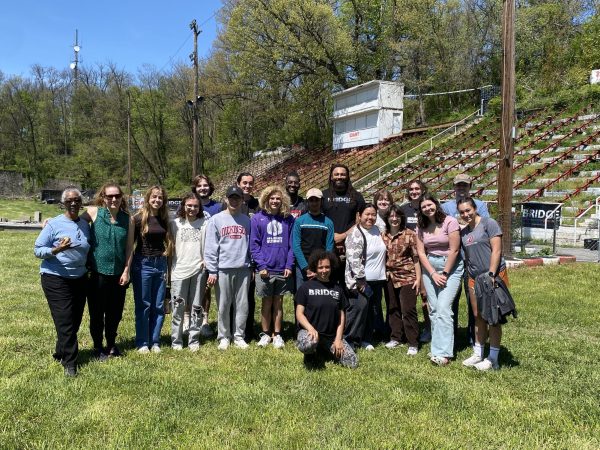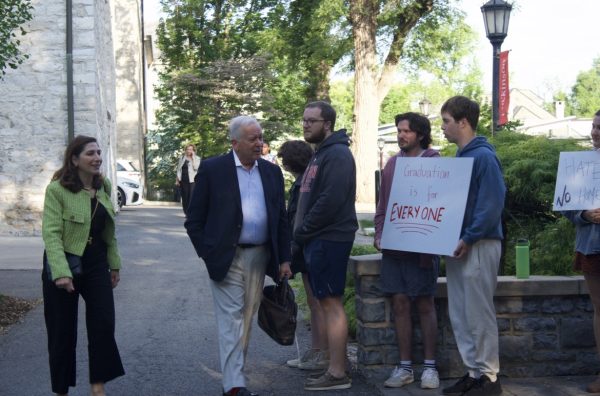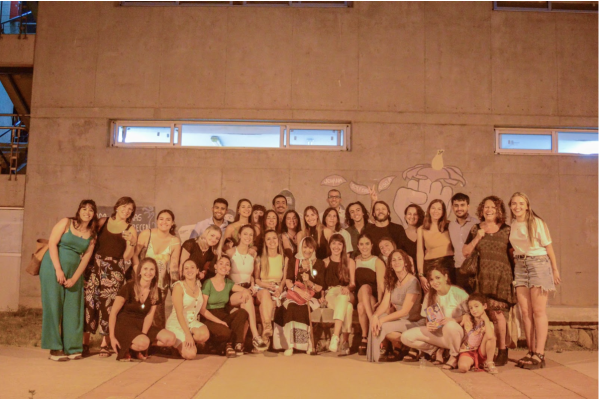Dickinsonians React to Low Refugee Cap
Whether it’s for political, economic or personal reasons, Dickinson students have a wide variety of opinions on the Trump Administration’s recent cap on the number of refugees allowed into the country.
A New York Times article, “Trump to Cap Refugees Allowed Into U.S. at 30,000 a Record Low” from Sept. 17, reported that this year the capacity is set at 30,000 refugees, the lowest it has been in 30 years. In comparison, the number of refugees allowed into the country in 2016, under the Obama Administration, was 110,000.
While the President’s ban may seem deterring, the New York Times reports that there are “730,000 additional immigrants waiting for their cases to be resolved by immigration courts…”
According to Bryce Dunio ’22, “We have no obligation to help all the world’s refugees. If we took in every single person, then we aren’t a country. We will collapse. At the end of the day, it would be better to help rebuild the country.”
Not all students share the same sentiment as Dunio
“It’s pointless to take the number down. It’s harmful to people trying to escape areas of high conflict and danger,” said Mohala Kalibe ’22. “Reducing the number of people coming in harms more people while fixing nothing.”
Many students like Kalibe agree that restricting the number of refugees in America exposes them to more harm.
Henry DeGarmo ’22 said, “More people will be harmed in the long run. There’s nothing to benefit from it.”
According to Micaela Kitchen ’21, “Just based off our values of liberty for everyone, I think it’s ridiculous that we don’t respect these people. As Americans, it’s our duty to welcome these people in danger.”
When asked about the issue, College Democrat’s club treasurer, Joshua Sack ’19 said, “It’s not just the number of refugees allowed into the country being cut down, it’s the makeup of refugees we accept. 80 percent of refugees America accepts are of Christian faith—that doesn’t check with the makeup of refugees worldwide, so it definitely seems like a culmination of religious makeup in the country.” From an economic perspective, Sack said, “Refugees are great for the economy. A McKinsey study concluded that every dollar spent on refugees is an economic return of 2 dollars.”
Collin Black ’22 justified his thought that America should help refugees by quoting the Statue of Liberty. “Give me your tired, your poor, your huddled masses yearning to breathe free…send these, the homeless, tempest-tossed to me, I lift my lamp beside the golden door!”
Professors are also weighing in on the subject.
“There’s a common analogy that people use—when you’re on an airplane they tell you to put your mask on first before your child’s so you can better help them; people use this analogy when talking about America helping out refugees,” Claire Seiler, associate professor of English, said. “However, you’re already on the plane, and the oxygen mask is actually going to put everyone at greater risk of fixation. You’ve already seceded the point that these needs are inseparable. The use of metaphor to obscure cruelty is itself a ‘Trumpian’ gesture. We are talking about people in dire need and we are saying to people ‘there’s no room here for you’. I see the grounds on which the Trump administration homily argues for this cut on refugees both fundamentally American and as one more space in which in order to defend their position they must deny all facts and all empathy and just embrace cruelty.”





